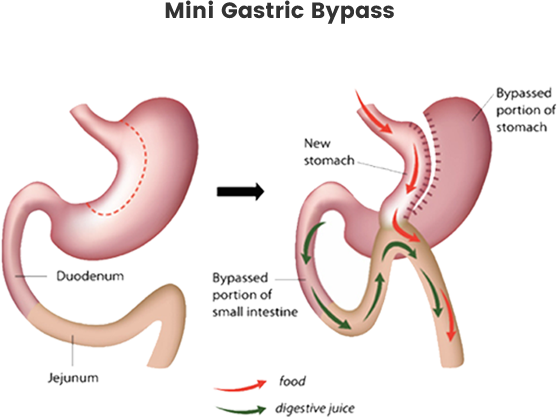What to Expect During Mini Gastric Bypass Surgery
Mini gastric bypass surgery is a popular weight loss procedure that offers a shorter operation time and faster recovery compared to traditional gastric bypass. If you’re considering this option, understanding what to expect during the procedure can help ease your concerns and prepare you for a successful experience. This guide walks you through the entire surgical process—from preparation to the day of surgery and immediate recovery.
What Is Mini Gastric Bypass Surgery?
Mini gastric bypass (MGB), also known as One Anastomosis Gastric Bypass (OAGB), is a less invasive alternative to the traditional Roux-en-Y gastric bypass. The procedure involves:
-
Creating a small stomach pouch
-
Bypassing a portion of the small intestine
-
Reducing calorie and nutrient absorption
This dual approach of restriction and malabsorption makes MGB highly effective for weight loss and for managing obesity-related conditions such as type 2 diabetes, hypertension, and sleep apnea.
Preparing for Surgery
Preparation for mini gastric bypass surgery typically begins weeks before your scheduled date. Your surgical team will provide personalized instructions, but common steps include:
1. Preoperative Evaluation
You’ll undergo several tests, such as:
-
Blood tests
-
Chest X-ray
-
ECG (electrocardiogram)
-
Nutritional assessment
-
Psychological evaluation
2. Dietary Changes
Most patients start a liquid or low-calorie diet 1–2 weeks before surgery to reduce liver size and make the surgery safer.
3. Medication Adjustments
Certain medications (e.g., blood thinners, NSAIDs) may need to be paused or adjusted before surgery. Always follow your doctor’s instructions.
The Day of Surgery: What to Expect
Mini gastric bypass surgery is usually performed laparoscopically, which involves small incisions and the use of a camera to guide the procedure.
1. Arrival at the Hospital
You’ll arrive a few hours before the surgery. Nurses will:
-
Check your vitals
-
Insert an IV line
-
Administer pre-op medications
-
Review your consent forms
2. Anesthesia
You’ll receive general anesthesia, meaning you’ll be completely asleep and feel no pain during the surgery.
3. The Procedure Itself
The surgery typically takes 60–90 minutes. Here’s what happens:
-
A small pouch is created at the top part of your stomach (about 1/4 of its original size).
-
A section of your small intestine is looped and connected directly to the new pouch.
-
This reroutes the food to bypass a large portion of your stomach and the first part of the small intestine.
Only one connection (anastomosis) is made—hence the name “mini,” referring to its simpler design compared to traditional bypass.
Immediately After Surgery
Once the surgery is completed, you’ll be taken to a recovery room for monitoring.
1. Waking Up
You may feel groggy or disoriented as the anesthesia wears off. Common sensations include:
-
Mild abdominal discomfort
-
Dry mouth
-
Sore throat (from the breathing tube)
2. Hospital Stay
Most patients stay 1–2 days in the hospital. During this time:
-
Nurses will monitor your vitals
-
You’ll begin walking as soon as possible to prevent blood clots
-
You’ll start sipping clear fluids under supervision
3. Pain Management
Pain is usually mild to moderate and controlled with prescribed medications. Most patients do not require narcotics for long.
Recovery and Aftercare
Your care team will give you detailed instructions for home recovery. Here’s what to expect:
1. Diet Progression
You’ll follow a phased diet:
-
Week 1–2: Clear liquids
-
Week 3–4: Pureed foods
-
Week 5+: Soft, then regular foods (with portion control)
2. Activity
Light walking is encouraged immediately. Most patients return to work within 1–2 weeks, depending on the job type.
3. Supplements
Due to nutrient malabsorption, lifelong supplements are required:
-
Multivitamins
-
Calcium with Vitamin D
-
Vitamin B12
-
Iron (if needed)
4. Follow-Up Visits
Regular follow-ups help monitor your weight loss, nutritional status, and overall health. These occur:
-
1 week post-op
-
1 month, 3 months, 6 months, then yearly
Possible Risks and Complications
While mini gastric bypass is generally safe, like any surgery, it carries risks:
-
Infection or bleeding
-
Leaks at the surgical connection
-
Nutritional deficiencies
-
Acid reflux or bile reflux
Choosing an experienced bariatric surgeon and following post-op guidelines significantly reduces these risks.







